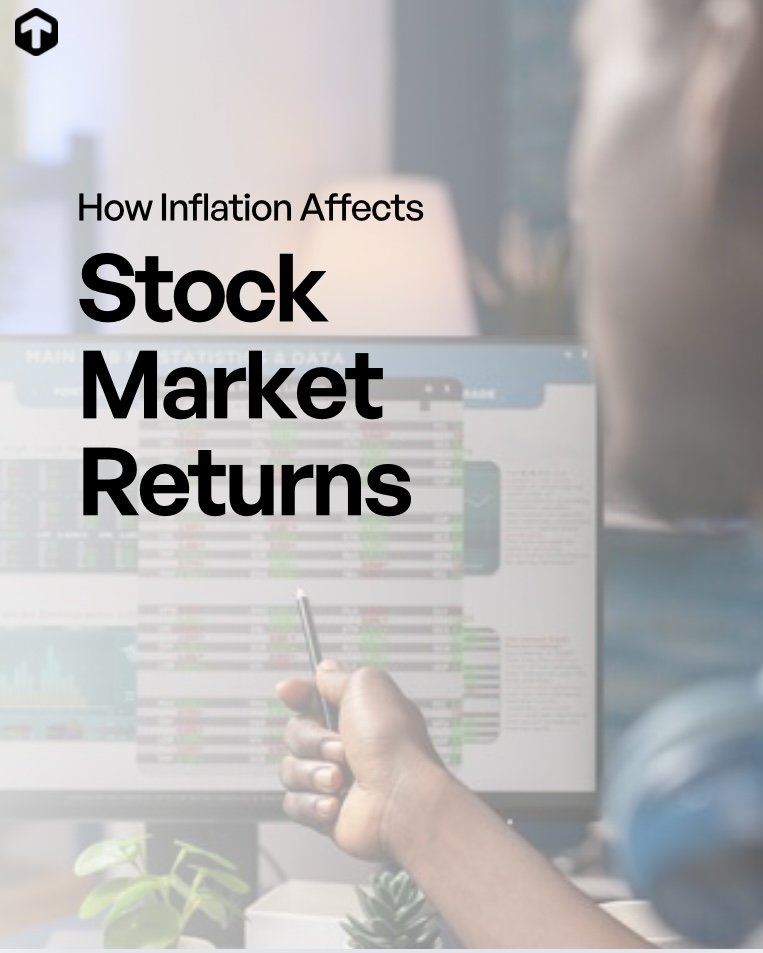Imagine working hard to build a nest egg, only to find that its value is being slowly but surely eroded by an invisible force: inflation. You’ve been carefully saving and investing, thinking you’re building a solid financial future.
But then you notice something unsettling—your money doesn’t seem to go as far as it used to. Sound familiar? That’s the invisible hand of inflation, quietly eroding your purchasing power and threatening the returns on your investments.
In this post, you’ll understand how inflation and the stock market interact, why it matters to you, and what you can do to protect your hard-earned money. Before diving into how inflation interacts with the stock market, let’s make sure we’re on the same page about what inflation is.
What Is Inflation?
Inflation is the rate at which the general level of prices for goods and services rises over time. Think about how much a loaf of bread cost five years ago versus today—that’s inflation in action.
While a little inflation is normal (and even healthy for the economy), high inflation can erode your purchasing power. It’s like watching sand slip through your fingers—the harder you hold on, the faster it seems to disappear. Now imagine that same effect on your investments. The returns you once celebrated could lose their value in real terms, all because of inflation.
How Inflation Affects Stock Market Returns
The relationship between inflation and stock market returns is like a complicated love story sometimes they get along, and sometimes they clash. Here is how inflation affects stock market
1. Impact on Corporate Earnings
Inflation raises the cost of goods and services, which can eat into a company’s profit margins. For instance, if a business spends more on raw materials or wages due to inflation, it has less money left over as profit. Lower profits often translate to lower stock prices, which can hurt your returns.
However, companies that can pass on these increased costs to their customers (like those in consumer staples or utilities) tend to fare better during inflationary periods. These are often referred to as “inflation-resistant” stocks.
2. Effect on Consumer Spending
When inflation rises, consumers often tighten their belts. People spend less on non-essential items, which can hurt companies that rely on discretionary spending.
On the flip side, companies that sell necessities like food or healthcare products may remain stable, as people will continue to buy these items regardless of inflation.
3. Influence on Interest Rates
Central banks, like the Federal Reserve, usually respond to high inflation by raising interest rates. While this move is aimed at cooling down inflation, it also impacts the stock market. Higher interest rates make borrowing more expensive for companies, slowing down growth and reducing stock prices. For you, as an investor, this means lower returns during periods of rising rates.
How Can You Protect Your Investments from Inflation?
1. Diversify Your Portfolio
You’ve heard this advice before, but during inflationary periods, it’s more critical than ever. Consider diversifying into sectors that perform well during inflation, such as energy, utilities, and consumer staples.
Adding international stocks or assets can also provide a hedge if inflation impacts certain regions more than others.
2. Invest in Inflation-Protected Securities
Treasury Inflation-Protected Securities (TIPS) are designed to protect against inflation. While these aren’t stocks, they’re worth considering as a part of your overall investment strategy.
3. Focus on Dividend-Paying Stocks
Companies that consistently pay dividends can provide a steady income stream, which becomes even more valuable during inflationary periods. Dividends can help offset some of the real-return losses caused by rising prices.
4. Keep an Eye on Interest Rates
Understanding how central banks respond to inflation can give you an edge. If interest rates are likely to rise, consider reducing exposure to high-growth stocks and shifting toward value stocks or sectors that benefit from higher rates.
5. Don’t Panic, Think Long-Term!
It’s easy to feel anxious when inflation rises and stock prices wobble. But remember, the stock market rewards long-term investors. Instead of making impulsive decisions, focus on your overall financial plan and make adjustments as needed.
Conclusion
Inflation doesn’t have to be the villain in your investment story. While it can challenge your stock market returns, it also presents opportunities for those who are prepared. By understanding how inflation affects different sectors and taking proactive steps to protect your portfolio, you can navigate these waters with confidence.
Remember, the key is to stay informed and think long-term. Inflation is a reality, but with the right strategy, it doesn’t have to derail your financial goals. So, are you ready to take charge of your investments and make inflation work for you instead of against you? Let’s start today—your future self will thank you.



